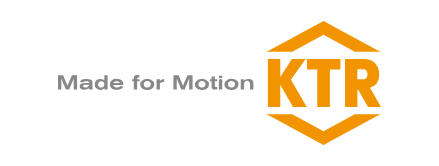 Add My Company
Add My Company
Sign In

How will a split from the EU affect trade involving hazardous materials?
The realities of Brexit have caused a lot of confusion and worry for businesses who have branches in or sell to the EU. As a manufacturer of flexible couplings for power transmissions for customer in and outside of the UK, KTR shares many of these concerns. While there are many uncertainties surrounding Brexit, the way in which the UK will respond to EU mandated standards and directives is of particular importance to the manufacturing sector. The purpose of EU directives is to form a technical barrier to protect the market from unsafe goods coming from outside the EU and to create a level playing field of trade within the EU. These directives cover all aspects of trade from machinery and transport all the way through to design, health, and safety. Currently, there are two ATEX directives that cover hazardous areas and potentially explosive atmospheres: ATEX 2014/34/EU, and ATEX137. Every item manufactured in Europe or manufactured outside of Europe for use in “EU zoned hazardous areas” must have a valid certificate of compliance to the ATEX directives.
As long as DSEAR (Dangerous Substances and Explosive Atmospheres Regulations) continues to enforce ATEX directives in the UK, the status quo should remain. Not only does ATEX compliance facilitate trade, but it protects the market from unsafe, non-ATEX compliant equipment. What may change post-Brexit is the UK’s ability to influence future directives. As a non-EU member, it is unlikely that the UK would have input on future ATEX amendments. Although it’s not ideal to be ‘left out’, ATEX updates are always published online and there have been very minor changes made over the past 20 years.
While ATEX compliance is likely to stay the same, whether the UK notified bodies for Potentially Explosive Atmospheres will retain notified body status is up for debate. The UK notified bodies have a wealth of technical experience and carry out significant business with European and international companies that require ATEX certificates to sell in the EU. These manufacturers are required to test new prototypes and continually update existing products to meet ATEX standards. There are 188 bodies involved in testing and accreditation, many of which stand on International Standards Committees and are responsible for international trade of oil and other critical chemicals.
Currently, the EU has 67 notified bodies that carry out compliance testing; 8 in the UK, 12 in Germany, 10 in Italy, 3 in Turkey etc. Although leaving the EU could jeopardise our notified body status, Turkey’s inclusion may point to some leniency. Turkey is not a member of EFTA (European Free Trade Association) but has been included by the Customs Union Joint Committee to facilitate its application to join EU and eliminate technical barriers to trade. Given the vast amount of business generated by the UK notified bodies, maintaining notified body status is a critical matter. The UK must come to an agreement with the Joint Customs Union Committee if it intends to continue this business post-Brexit and maintain its position as a world leader in the field.
It’s impossible to say for certain how Brexit will affect the manufacturing industry. However, given the many safety and trade benefits of uniform hazardous industry compliance, non-compliance certainly would not benefit the UK. Time will tell, but things should remain relatively stable in this respect and KTR will continue to manufacture flexible couplings to any new standards that may arise.
For more information on What does Brexit mean for Hazardous Industry Compliance? talk to KTR U.K. Ltd
Enquire Now
List your company on FindTheNeedle.

